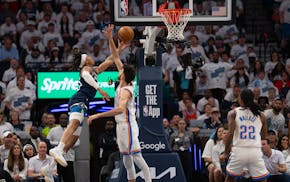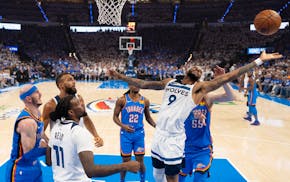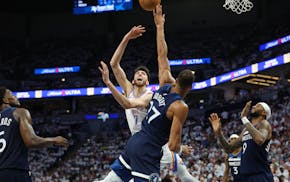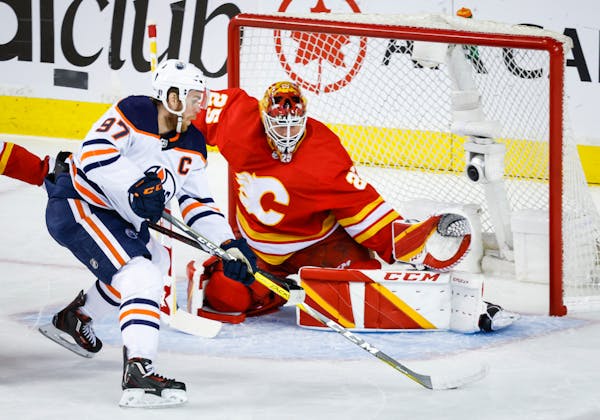Everywhere one turns these days, a Twin Cities sports team is happy. Not happy after losses, of course, but in general mood and how the players and coaches feel about their workplace vibe. And they are more than willing to tell you about it.
The Twins? The clubhouse has never gotten along better.
The Vikings? No more fear and walking around on eggshells.
The Wild? Bad playoff series but look at how close the locker room became after some, ahem, noticeable roster changes.
The Timberwolves? Not just a team but a family.
Frankly, this is odd, and I'm not sure what to make of it.
Having covered sports in this market for two-plus decades, I'm used to witnessing tension, dysfunction, schisms, nonsense. Even in normal, sane times, we don't often hear the effusive platitudes about culture and chemistry that are presently pouring out of every organization.
Our teams have become a Hallmark card.
Just listen …
Dalvin Cook on the Vikings: "The energy and having guys here enjoying the day and having fun, I can feel the vibes, it's just fun. Coming to work is fun. I love my job and I love being around these guys."
Karl-Anthony Towns on the Wolves: "We're consistently, 24/7, hanging out with each other. It feels like AAU basketball, where we get to the hotel, everyone wants to go to the same hotel room and hang out with each other. It's very funny to see 15 millionaires arguing about pizza."
Cam Talbot on the Wild: "This is a special group … and I'm just excited to be a part of this team and this group, that locker room. This is still a group that I believe in, a group that I'd like to be a part of. It's a special team."
Rocco Baldelli on the Twins: "We have a very solid, confident resting place in our clubhouse. And a group that is very consistent in their beliefs and their work and their values and the way all the guys play together as one."
What in tarnation is happening here? I keep hearing Sister Sledge's "We Are Family" playing on a loop in my mind.
So what does this all mean?
The word "chemistry" is a sports buzzword that gets lionized as a tenet of success without having any way of being measured. It's much easier to evaluate red-zone efficiency, goals allowed, three-pointing shooting or team ERA in determining why a team wins or loses because those factors are quantifiable.
Chemistry is an intangible that cannot be proven or unproven but so often gets offered up by athletes when their teams are successful. I never know how much credence to give it. A lot? Just a little?
Let's start with the basic premise that happy employees will perform better than disgruntled ones, and that a positive work environment is better than a negative one. So strong locker room chemistry is valuable in that regard.
Let's also acknowledge that nothing in sports eclipses talent. Give me talent over a tight-knit locker room every day.
But when evaluating something abstract, the question is, which comes first: success or chemistry?
I have covered teams that I perceived to have genuine camaraderie and personal connections. The best of those that I observed: the 2003 Wild, the 2009 Vikings and the Twins' 2019 Bomba Squad.
Being around those teams felt different. Again, it's impossible to calculate a vibe, other than to sense that something about it feels right.
But did those three teams have great chemistry because they won a lot of games, or did strong chemistry fuel their success?
The Wolves doubled their win total and the Wild set a franchise record for points this season. Both teams noted how different things felt in locker room relationships. Both teams subsequently made quick exits from the playoffs, which wasn't different.
That outcome felt unsatisfying after enjoyable regular seasons, which doesn't render the chemistry conversation irrelevant, just mindful that teams that get along swimmingly can fizzle just the same.
Still, it's nice and somewhat unusual to hear teams gushing about their workplace atmosphere, which only means one thing: Someone is either going to request a trade or throw a punch at a teammate soon.

Scoggins: Buckle up Wolves fans, it's going to be a very telling offseason

Scoggins: Finch's next challenge is to unleash the Wolves' youngsters

Scoggins: Timberwolves learn just how far behind they are

Scoggins: Chet Holmgren is in the right place at the right time


